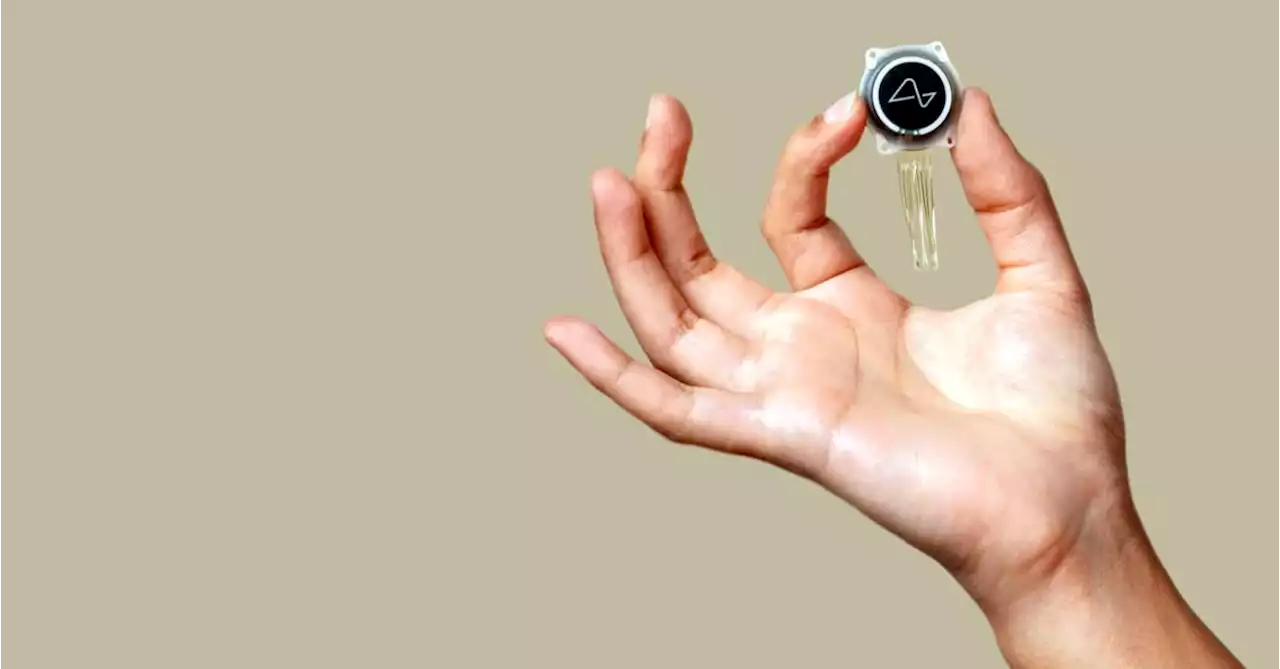The fifth article in the series asks why people are so uncomfortable with changing the brain.
Like many people who have struggled with a mental illness, Emily Hollenbeck had plenty of stories of people not quite getting it. One memorable instance happened as she was about to be anesthetized for an electroconvulsive therapy treatment. The anesthesiologist found out that she had a Ph.D. in psychology. “His eyes settle on me, and he goes, ‘Oh, that’s ironic.’” Her academic background should have somehow prevented her illness, he seemed to imply.
Those consequences are why I’m not identifying Patient 001 by his name. He works in an intensely intellectual and competitive field, and with a new baby at home, he can’t risk losing business over people’s mistaken assumptions. “You’re screaming for help, and they just don’t understand,” Patient 001 tells me. “That’s probably one of the reasons I’m talking to you, even though I’m doing it anonymously. I hope one day one kid reads what you’re writing, and he finds DBS and he’s cured.”
I’ve been wondering the same thing: What sets the brain apart, and why are people so uncomfortable with attempts to change it? after his implant was turned on? That story sounds a bit trivial. His new musical taste didn’t bother him; it’s a minor thing in the grand scheme of things. But that change, that switch, arguably bores straight to the core of our unease. So many of us, myself included, consider our brains — and the minds they create — the bedrock of our identity.
Amanda echoes the sentiment: “Nothing I’ve ever done has changed who I am or my personality,” she says, DBS included. “I’m still the same person. I’m just suffering more or less.”
United States Latest News, United States Headlines
Similar News:You can also read news stories similar to this one that we have collected from other news sources.
 Decoding depression: Researchers identify crucial biomarker that tracks recovery from treatment-resistant depressionA team of leading clinicians, engineers, and neuroscientists has made a groundbreaking discovery in the field of treatment-resistant depression. By analyzing the brain activity of patients undergoing deep brain stimulation (DBS), a promising therapy involving implanted electrodes that stimulate the brain, the researchers identified a unique pattern in brain activity that reflects the recovery process in patients with treatment-resistant depression. This pattern, known as a biomarker, serves as a measurable indicator of disease recovery and represents a significant advance in treatment for the most severe and untreatable forms of depression.
Decoding depression: Researchers identify crucial biomarker that tracks recovery from treatment-resistant depressionA team of leading clinicians, engineers, and neuroscientists has made a groundbreaking discovery in the field of treatment-resistant depression. By analyzing the brain activity of patients undergoing deep brain stimulation (DBS), a promising therapy involving implanted electrodes that stimulate the brain, the researchers identified a unique pattern in brain activity that reflects the recovery process in patients with treatment-resistant depression. This pattern, known as a biomarker, serves as a measurable indicator of disease recovery and represents a significant advance in treatment for the most severe and untreatable forms of depression.
Read more »
 Neuralink is recruiting subjects for the first human trial of its brain-computer interfaceNeuralink plans for the study to take six years and wants to test every part of its system — including the robot used to implant it.
Neuralink is recruiting subjects for the first human trial of its brain-computer interfaceNeuralink plans for the study to take six years and wants to test every part of its system — including the robot used to implant it.
Read more »
 Brain Scans Reveal That Loneliness Changes the Way We View the WorldA recent study indicates that lonelier people may see the world as more threatening. Learn what brain scans can tell us about loneliness on the brain.
Brain Scans Reveal That Loneliness Changes the Way We View the WorldA recent study indicates that lonelier people may see the world as more threatening. Learn what brain scans can tell us about loneliness on the brain.
Read more »
 Musk's Neuralink to start human trial for brain implant chipBillionaire entrepreneur Elon Musk's brain-chip startup Neuralink said on Tuesdaythat it has received approval from an independent review board to start the first human trial of its brain implant for paralysis patients.
Musk's Neuralink to start human trial for brain implant chipBillionaire entrepreneur Elon Musk's brain-chip startup Neuralink said on Tuesdaythat it has received approval from an independent review board to start the first human trial of its brain implant for paralysis patients.
Read more »
 Golfer Gary Woodland Is Recovering From Brain Tumor SurgeryPro golfer Gary Woodland is recovering after he had surgery to remove a brain tumor he was diagnosed with earlier this year
Golfer Gary Woodland Is Recovering From Brain Tumor SurgeryPro golfer Gary Woodland is recovering after he had surgery to remove a brain tumor he was diagnosed with earlier this year
Read more »
 Scientists Have Found the 'Zombie Switch' for a Brain-Controlling Ant ParasiteRecent research has found that these parasites can compel ants to climb up blades of grass when it's cool and to climb back down when it's too hot.
Scientists Have Found the 'Zombie Switch' for a Brain-Controlling Ant ParasiteRecent research has found that these parasites can compel ants to climb up blades of grass when it's cool and to climb back down when it's too hot.
Read more »
